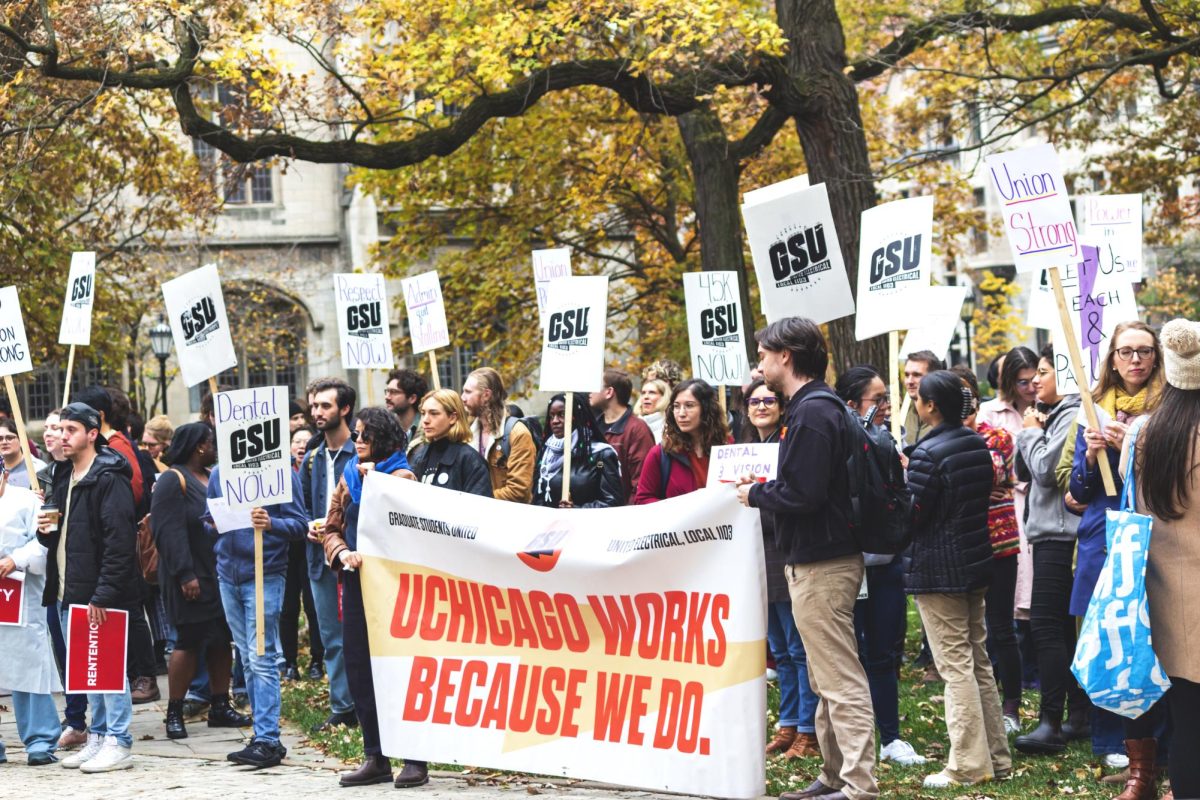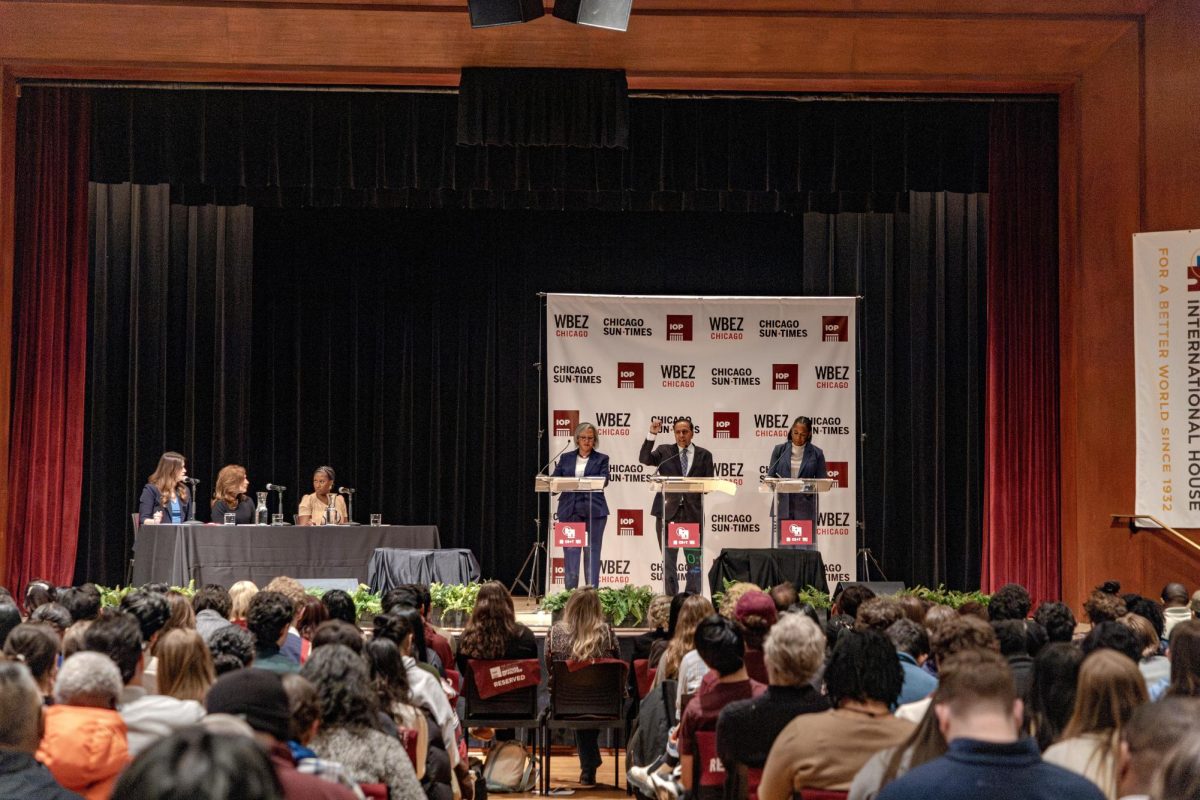Between March 25 and 28, members of Graduate Students United–United Electrical (GSU-UE) voted to ratify the union’s first-ever contract with the University.
Ninety percent of GSU-UE members participated in the vote, with 97 percent voting in support, according to the union’s website. The newly ratified contract came into force on March 28 immediately after the vote and is tentatively set to be effective until March 2027.
“We’re really proud,” Renée Fonseca, a human genetics Ph.D. student who served as the elected bargaining committee representative for the Biological Sciences Division, said in an interview with the Maroon. “This has been a really long process getting to this point, with hundreds of organizers involved. It’s really great that our membership turned out and they have agreed to have this contract for the next few years to cover us and improve our working conditions.”
GSU-UE represents about 3,100 UChicago graduate students who are employed in research or teaching positions, 1,600 of whom were eligible voters. The University agreed to negotiate with GSU-UE last year after more than 90 percent of eligible members voted to unionize, the second successful vote in six years. Contract negotiations began in May 2023 and lasted until March 8, 2024, when the union announced a tentative agreement with the University.
“This agreement is the result of strong partnership and collaboration with GSU-UE, and we appreciate their continued engagement,” Jason Merchant, the vice provost for academic appointments and graduate education, wrote in an email to university employees and graduate students on Friday. “We are committed to supporting the success of all graduate students at the University, and to working with union representatives and university units to ensure a smooth implementation of the agreement moving forward.”
The contract guarantees Ph.D. students a minimum stipend of $41,000 per year as of July 1 and $45,000 per year as of October 1, with the minimum increasing by 3 percent each year. A $19 minimum hourly wage, increasing by 2.5 percent each year, will go into effect on October 1 for research assistants and any other graduate positions paid by the hour. All workers already compensated above the new minimums will get 2.5 percent pay increases this July and every October for the duration of the contract.
The contract also allows Ph.D. students annual payments for transportation, dental and vision care, and retirement savings. Fonseca called the inclusion of the retirement savings stipend an important acknowledgement “that retirement exists for [graduate] workers and should be prioritized in some way.”
Other provisions of the contract include increased childcare benefits; incorporation of union representatives into Title IX procedures; and additional language addressing discrimination by caste.
According to Fonseca, union negotiators had hoped to include protections against discrimination on the basis of political affiliation in addition to caste, but the language did not make it into the final contract. She also highlighted more budget transparency amid concerns about the University’s finances and further changes to the Title IX grievance process as major asks that the University denied.
Fonseca said GSU-UE will now work on ensuring smooth implementation of the agreements even as it looks toward future negotiations. “It’s now our responsibility to hold parties accountable to this contract, and we’re looking to be a really focused organization when it comes to that goal,” she said, pointing to the assembly of a grievance committee and efforts to train new stewards. “But the root of our work now is going to be in stewardship and in political education or mobilization towards building support behind some of the future items we’d love to see in the contract.”
“It’s really lovely to see graduate workers recognize themselves as people deserving of a safe workplace and deserving of respect at work,” Fonseca said. “We’re extremely talented, capable people, as many workers are, so it’s great to see them stand up for themselves.”















